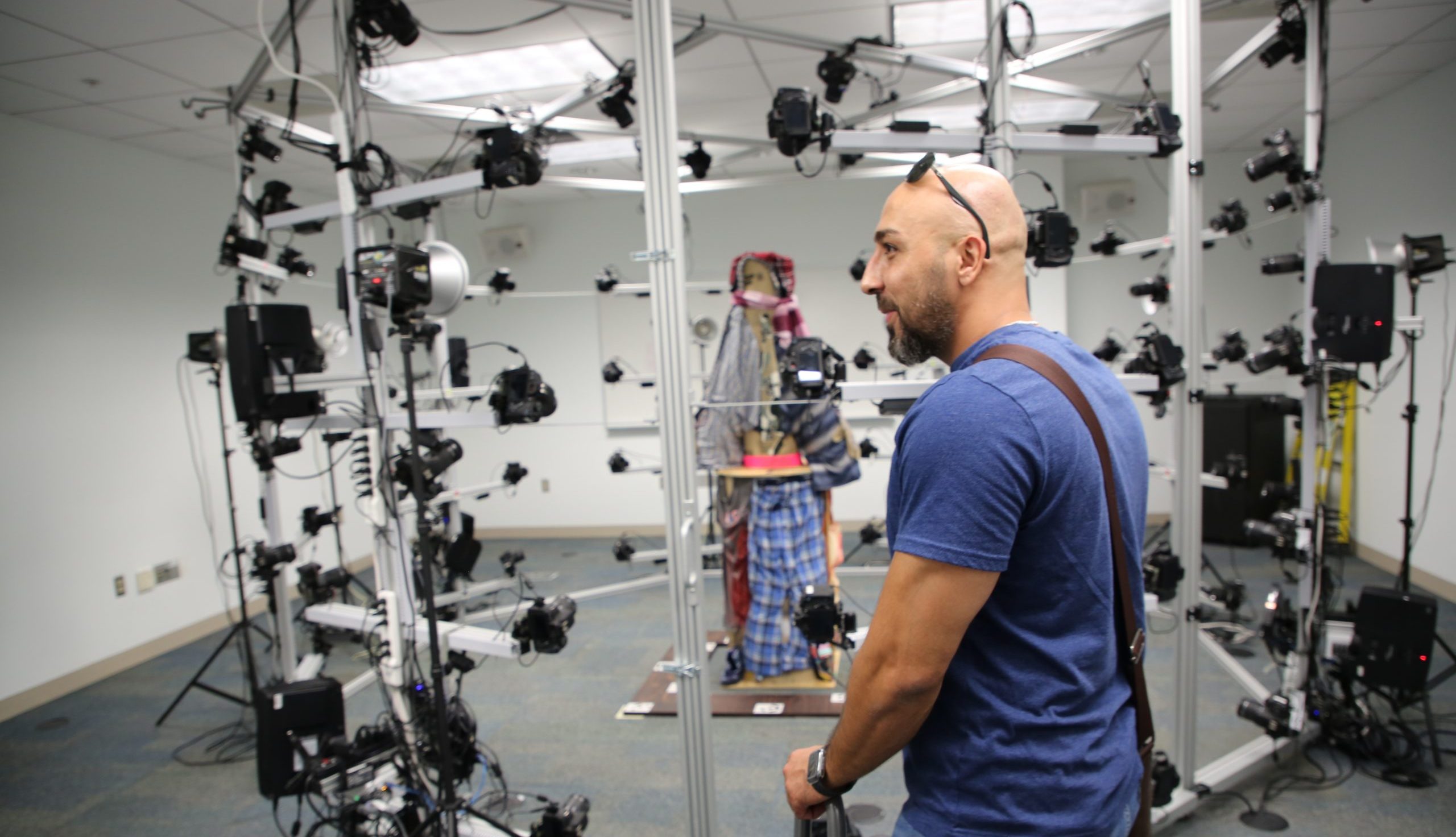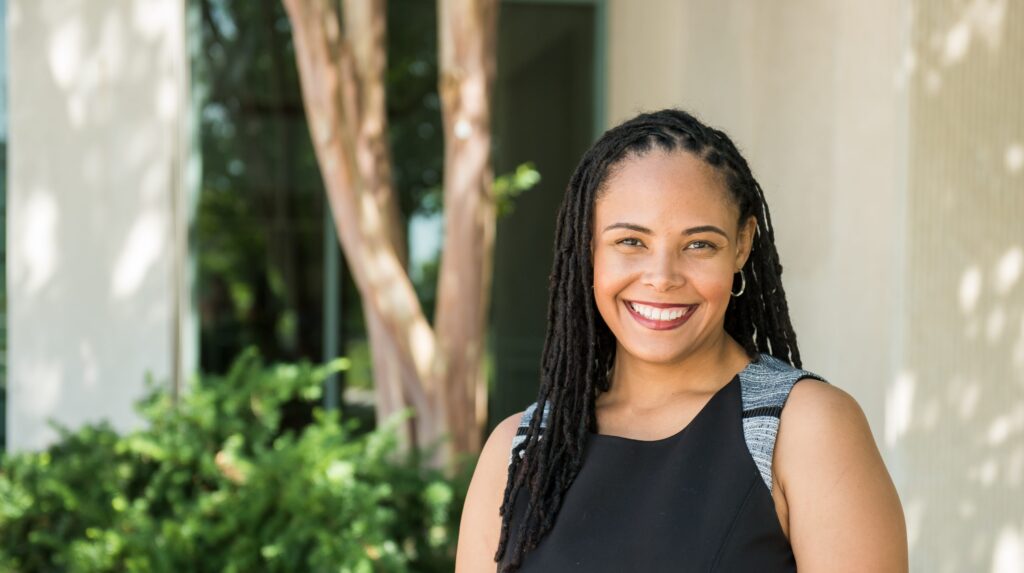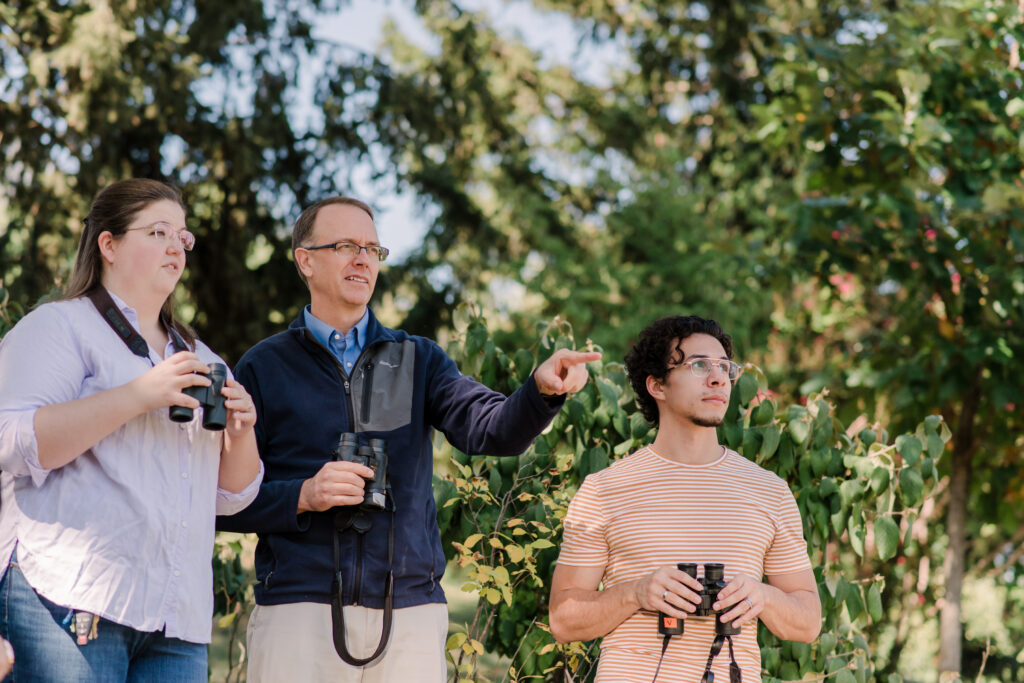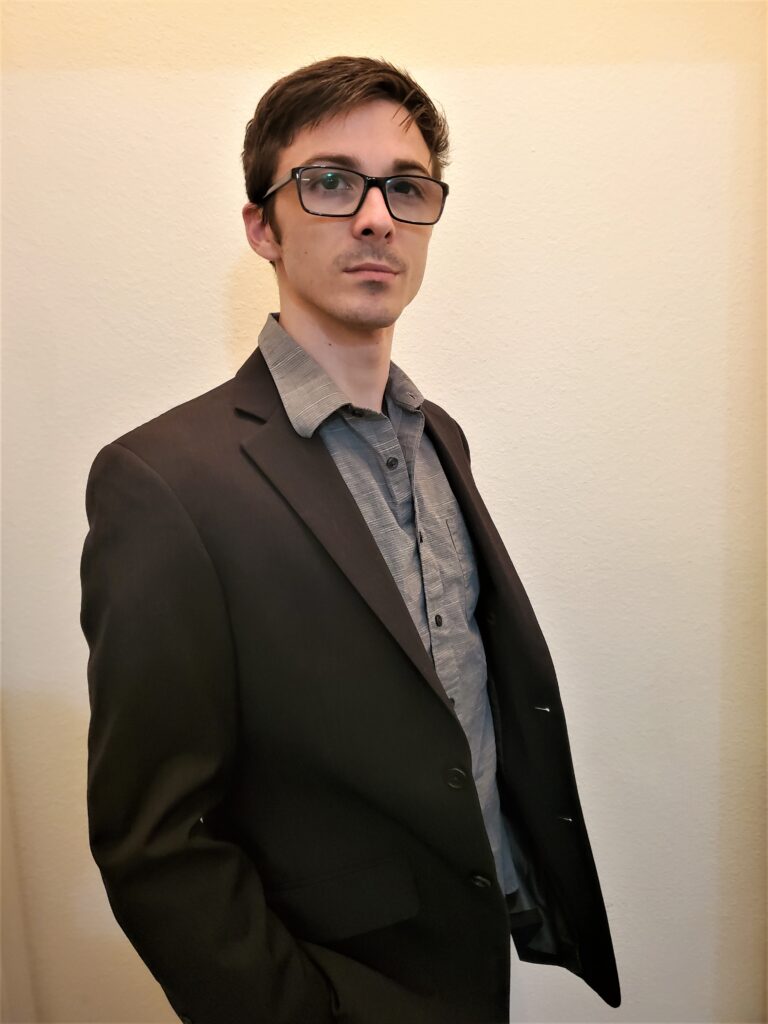In September of 2020, UMBC’s Camee Maddox-Wingfield, assistant professor of anthropology, wanted to introduce her Anthropology 211 students to the process of digital storytelling and the tools of the Smithsonian Learning Lab. She reached out to Sarah Jewett who had just launched a new digital storytelling collaboration with the Montgomery College (MC) Digital Storytelling Internship program at the Paul Peck Humanities Institute. The internship places MC students with UMBC faculty who need help with their digital story projects.
Jewett, director of innovations in transfer research and practice at UMBC, knew about MC’s long-standing partnership with the Smithsonian Center for Learning and Digital Access, of which the lab is part. She collaborated with MC’s Digital Storytelling Internship to place Mark Siegrist, who was an intern in the lab, with Maddox-Wingfield.
Siegrist was the perfect fit. He produced the digital story Maddox-Wingfield needed and had the opportunity to learn about the resources UMBC offers for transfer students.
“I’ve had a really good experience working with Mark Siegrist,” shares Maddox-Wingfield. “He was so helpful. I am so grateful that this sort of collaboration was made possible between the two institutions by Sarah Jewett.”
Building relationships
This growing, humanities-centered digital stories internship is a collaboration nourished by Jewett and MC’s Jamie Gillan and Mathew Decker. The two English faculty serve as co-coordinators of MC’s Digital Stories Internship, and Gillan is also a Ph.D. student in UMBC’s language, literacy, and culture (LLC) program. Jewett and Gillan initially connected through Gillan’s doctoral research at UMBC, on story work as a way to build empathy. This storytelling project was a natural extension of that work.
Together they built the structures necessary for MC students to work alongside UMBC faculty on digital storytelling projects. MC considers these UMBC collaborations to be Level 2 internships, completed after MC students gain initial experience with digital storytelling.
Participants enroll as non-degree students at UMBC during their internships to complete a service-learning course through UMBC’s Shriver Center. This provides them with additional support and guidance in completing their collaborative projects and reflecting on their internship experiences.
“Level 2 interns are expected to bring their own ideas to the table, to be leaders as well as collaborators,” explains Gillan. These learning and teaching partnerships between students and faculty are at the core of how UMBC fosters a culture of intellectual curiosity and relationship-building.
The faculty team for the digital stories partnership in fall 2020 included: Bill Shewbridge, professor of the practice in media and communications studies; Tania Lizarazo, assistant professor in modern languages, linguistics, and intercultural communication (MLLI) and the global studies program; and Beverly Bickel, M.A. ’94, instructional development systems, Ph.D. ’05, LLC, clinical assistant professor of LLC.
Great chemistry
UMBC and MC’s strong working relationship has deep roots. Ten years ago UMBC partnered with three other community colleges in Maryland to develop and implement the STEM Transfer Student Success Initiative (t-STEM). Jewett, the executive director of this initiative, worked with community college counterparts to develop the systems necessary to better support transfer students in STEM as they transitioned to UMBC.
The seven-year initiative was a great success and inspired Jewett to extend this same model to other fields. She began with a summer environmental science research experience organized in collaboration with Howard Community College and UMBC’s departments of geography and environmental science and biological sciences.
Rather than focus on expanding a single program, or even an array of STEM-focused programs, “We are working to scale horizontally to different disciplines,” Jewett explains. This includes the social sciences and humanities.
Finding a path
Like Mark Siegrist, MC student Ahmad Al-Olabi was also a Level 2 digital stories intern. The experience had a significant impact on his college experience.
In his Level 1 internship, Al-Olabi produced “The Journey: Swim or Die,” about his journey as a Syrian refugee fleeing to Greece. His powerful work was one of eight digital stories MC featured during UMBC’s first Digital Decameron.
“I was hesitant to share my experience,” explains Al-Olabi. But the feedback he received encouraged him to continue forward. “In the second internship,” he says, “I realized everyone empathized with my journey and valued my skills.”
As a Level 2 intern, Al-Olabi worked with Shewbridge’s digital stories class in collaboration with 20 students at Hong Kong University. He provided his fellow students with script feedback and technical support for the “Global Voices in a Time of Pandemic” project. The project fosters intercultural dialog about COVID-19.

Photo by Azigza Hussen, 2019
Al-Olabi appreciated working with Shewbridge, whose filmmaking career and expertise have opened a new career option for him to explore. This experience has made him feel more prepared for the next step of his academic career. “Before this program, I wasn’t sure I was ready for an American university,” explains Al-Olabi. “Now that I know Professor Shewbridge and Ms. Jewett, and having been on campus, I feel I can be successful.”
Reflection through storytelling
A third Montgomery College student, Stephanie Palencia, produced the personal story “Stand Up.” She addresses the importance of self-care while grappling with the pressures of cultural expectations and responsibilities.
Palencia worked with Lizarazo and Charlotte Keniston, an LLC doctoral student and associate director of UMBC’s Peaceworker Program, on Lizarazo’s Migration Stories project. They organized audio, text, and images to create a story map that reflects the migration stories of some of the members of Maryland’s Latinx community. Palencia also assisted Lizarazo in a digital stories workshop she facilitated at The Universities at Shady Grove.
“I’ve been grateful to have been invited to work on digital stories with Montgomery College students since 2019,” shares Lizarazo. She continued to work with these students on digital story projects through the pandemic. Of the partnership, she says, “This is truly an initiative in community-building beyond institutions.”
Building bridges to the future
Jewett notes that the internship engages students in critical thinking to refine their technical, communication, and storytelling skills. However, she explains, “The heart is about building meaningful relationships between MC students and UMBC faculty and staff as a bridge to university life.” It’s a mentoring process that reveals all that is possible at UMBC and beyond.
“These relationships are invaluable,” shares Siegrist. He notes that the UMBC internship gave him access to a network of professors. Should he transfer, he will understand and know the community, where to access resources, and whom to ask for help.
“This internship will have a big impact on my academic journey,” Siegrist says. “It showed me how I could leverage my skills to design new opportunities.”
Jewett hopes to bring more support and new opportunities to even more students. The spring internship is already underway with three new MC students.
She and Amy Froide, a professor of history, also just received matching funding from Bringing Theory to Practice. It’s an organization that works to link the engaged learning, well-being, and civic development of students. This grant will help fund a new summer experience in public history with Howard Community College.
“The impact increases for all involved,” Jewett says, “when students have learning opportunities to explore the different disciplines, networks, and resources UMBC offers, and to connect with mentors.”
Banner image: Al-Olabi visiting UMBCs Imaging Resource Center photogrammetry 3D and motion capture scanning rig in December 2019. Photo by Azigza Hussen, a Montgomery College digital student intern visiting UMBC with Al-Olabi. All photos by Marlayna Demond unless otherwise noted.
Tags: CAHSS, GES, History, LLC, MCS, MLLI, SAPH, ShriverCenter




